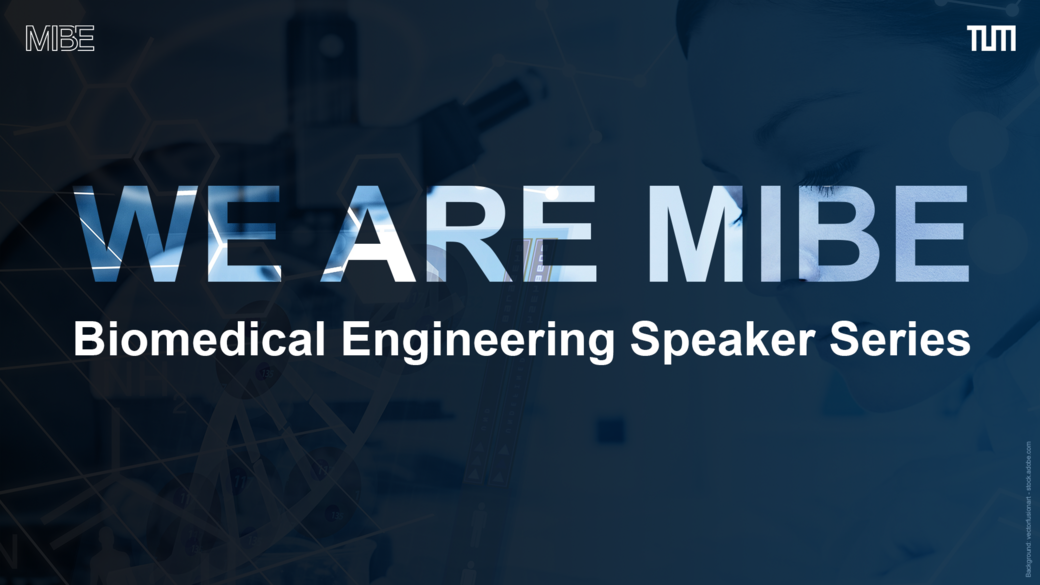In dieser Vortragsreihe geben pro Termin zwei Principal Investigators (PIs) des MIBE spannende Einblicke in ihre Forschung. Im Anschluss an die etwa 25-minütigen Vorträge gibt es Gelegenheit zum Austausch und Netzwerken vor Ort.
Prof. Dr. Bernhard Hemmer: Current developments of Multiple Sclerosis diagnosis and treatment
Prof. Dr. Werner Hemmert: Electrical stimulation of neurons in the human inner ear
Datum und Uhrzeit: Mittwoch, 10.07.2024, 16:15 – ca. 17:15 Uhr, anschließendes Networking
Ort: MIBE Hörsaal (Raum E.126), Boltzmannstraße 11, 85748 Garching und Zoom
Zu den Vortragsthemen

Current developments of Multiple Sclerosis diagnosis and treatment
Multiple Sclerosis (MS) is a chronic inflammatory disease of the central nervous system. The cause of the disease is still poorly understood. However, diagnostic and therapeutic options have improved significantly over the past two decades, and the disease can now be successfully treated in its early stages. In recent years, new treatment options have been developed for patients at different stages of the disease, further improving our therapeutic options. Other promising therapeutic approaches are currently being investigated and could expand our treatment options in the coming years. This talk will review the pathophysiological basis of MS, present the current status of diagnosis and treatment at different stages of the disease, and highlight promising future therapeutic strategies.
Bild: A. Eckert & A. Heddergott / TUM

Electrical stimulation of neurons in the human inner ear
Cochlear implants (CIs) are the most successful neuroprostheses: they restore hearing in deaf people to a surprisingly high degree. Prof. Hemmert and his team combine measurements of electrically evoked potentials and psychophysical measurements in cochlear implant users with advanced neuron models to better understand and improve neuro-implants. Based on high-resolution µCT scans from freshly preserved cadaveric human temporal bones and, more recently, with the Munich Compact Light Source (MUCLS), the team has achieved high-contrast images of the inner ear and especially the auditory nerve. They then calculate the current spread in the inner ear to derive neuronal excitation patterns of auditory nerve fiber populations and compare them with experiments. With these observations, Prof. Hemmert and his team aim to devise the next generation of CIs and, in addition, provide spectacular visualizations of the function of the most delicate sensory organ, the inner ear.
Bild: A. Eckert & A. Heddergott / TUM
Weitere Informationen
Livestream
Die Veranstaltung wird über Zoom gestreamt: https://tum-conf.zoom.us/j/612 2888 8412 Passcode: waMIBE
Anerkennung Qualifizierungsprogramm Promovierende
Bei fachlicher Eignung kann die regelmäßige Teilnahme an den Vorträgen als Fachspezifische Qualifizierung angerechnet werden.
Registrierungsformular für Promovierende
Weitere Termine dieser Reihe im SoSe 2024
Dieser Termin ist der letzte dieser Vorlesungsreihe im SoSe 2024.
